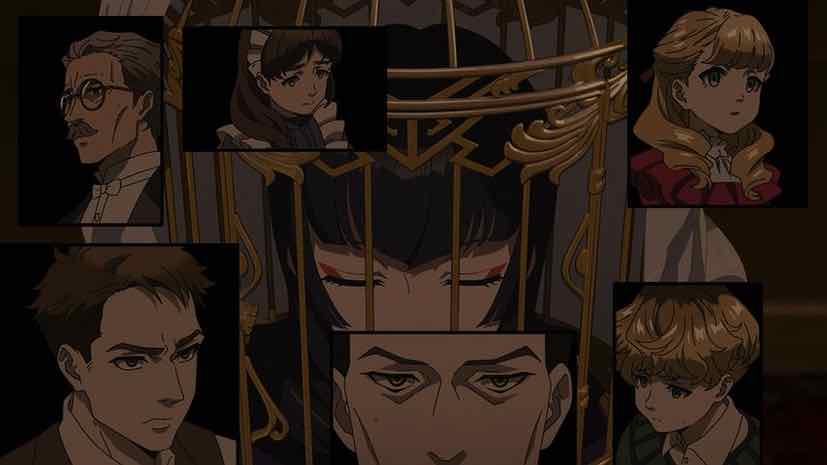 Even in murder mysteries, Occam’s Razor sometimes applies. And so it was with the first big case in Undead Girl Murder Farce, which would up in what always seemed like the most likely place. Too likely for me – which was the only reason I was betting against Raoul being the killer. But sometimes that can be a sort of misdirection in itself – using the audience’s preconceptions about the “rules” – against them. Now when the next mystery comes up, we have to think about UGMF’s own tendencies – how they conform to the expected, and how they don’t.
Even in murder mysteries, Occam’s Razor sometimes applies. And so it was with the first big case in Undead Girl Murder Farce, which would up in what always seemed like the most likely place. Too likely for me – which was the only reason I was betting against Raoul being the killer. But sometimes that can be a sort of misdirection in itself – using the audience’s preconceptions about the “rules” – against them. Now when the next mystery comes up, we have to think about UGMF’s own tendencies – how they conform to the expected, and how they don’t.
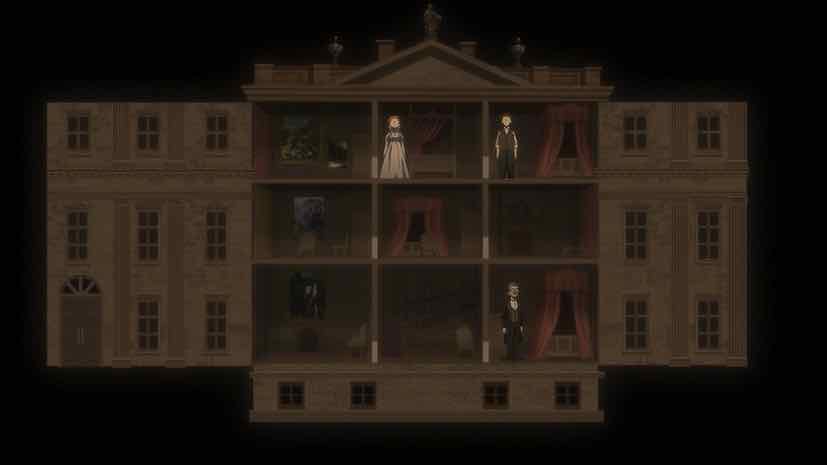 The success of a series like this depends on two broad factors – the mysteries themselves, and the accoutrements of their presentation. A sort of “bread and circuses” if you will, and I think Undead Girl Murder Farce set a strong marker in both respects. It had already established the song-and-dance – the main trio are a vastly entertaining troupe, and their take on the genre has been a blast to watch. I’m satisfied with the bread part too – the explanation for how all this went down made sense, both in terms of how it went down and how Aya figured it out (and both are equally important). It wasn’t an especially satisfying ending for the Godard family, but I don’t think it was incumbent on the series to make it so.
The success of a series like this depends on two broad factors – the mysteries themselves, and the accoutrements of their presentation. A sort of “bread and circuses” if you will, and I think Undead Girl Murder Farce set a strong marker in both respects. It had already established the song-and-dance – the main trio are a vastly entertaining troupe, and their take on the genre has been a blast to watch. I’m satisfied with the bread part too – the explanation for how all this went down made sense, both in terms of how it went down and how Aya figured it out (and both are equally important). It wasn’t an especially satisfying ending for the Godard family, but I don’t think it was incumbent on the series to make it so.
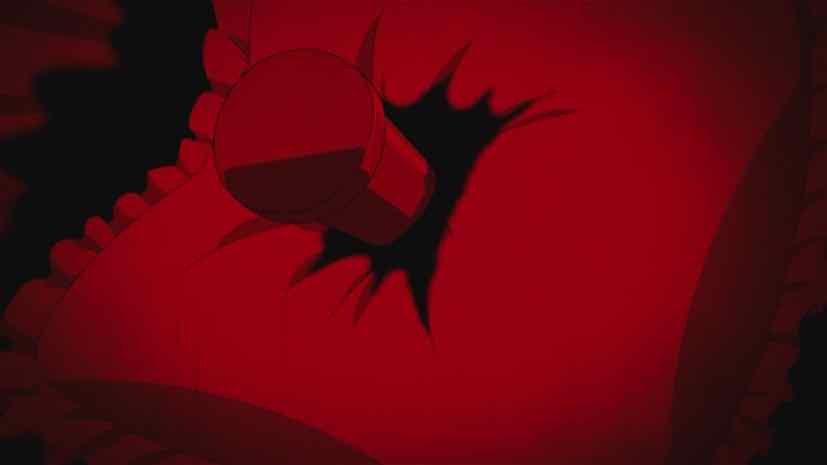 To wit, time was the key here. Aya catalogued seven problems that needed solving, but it really came down to the fact that the murder could not have been committed during the window when it supposedly was. A lot of things were not as they seemed – the time of the murder, the murder weapon itself – but it was pretty obvious that the killer was inside the house. The hunter Hugo was indeed working with someone on the inside, and indeed was basically a dupe – more examples of UGMF going with the least unlikely explanation against what some might consider genre tradition.
To wit, time was the key here. Aya catalogued seven problems that needed solving, but it really came down to the fact that the murder could not have been committed during the window when it supposedly was. A lot of things were not as they seemed – the time of the murder, the murder weapon itself – but it was pretty obvious that the killer was inside the house. The hunter Hugo was indeed working with someone on the inside, and indeed was basically a dupe – more examples of UGMF going with the least unlikely explanation against what some might consider genre tradition.
 This was pretty much deductive reasoning in the Doyle sense (and his spectre is all over this story) – eliminate the impossible, and whatever is left over must be the truth. The killer had to be an insider. It had to be someone with physical abilities beyond the human. It had to be someone with no alibi between 12:30-1:00 A.M.. One by one the suspects were eliminated, with Raoul and Giselle (who was my personal pick) the last ones standing. But the “human” part let her off the hook, and that leaves the youngest son. And the others among Aya’s problems are solved by the fact that he committed the deed not with the silver stake, but with holy water frozen into the shape of it. The old “ice as the murder weapon” gambit – a classic if ever there was one.
This was pretty much deductive reasoning in the Doyle sense (and his spectre is all over this story) – eliminate the impossible, and whatever is left over must be the truth. The killer had to be an insider. It had to be someone with physical abilities beyond the human. It had to be someone with no alibi between 12:30-1:00 A.M.. One by one the suspects were eliminated, with Raoul and Giselle (who was my personal pick) the last ones standing. But the “human” part let her off the hook, and that leaves the youngest son. And the others among Aya’s problems are solved by the fact that he committed the deed not with the silver stake, but with holy water frozen into the shape of it. The old “ice as the murder weapon” gambit – a classic if ever there was one.
 In the denouement, we get a little (well, a lot) more of Tsugaru’s backstory. It’s he who’s left with the unpleasant task of dealing with Raoul, who may be a vampire but was certainly no match for the onigoroshi in strength. What stands out most here is the contrast between his demeanor and his behavior. Tsugaru plays the clown expertly, but he’s a cold bastard who’s more than used to the act of killing. Is this how Godard would have wanted things settled, had it been left to him? One senses that he wouldn’t have had the steel to kill his own son, but Tsugaru – with Aya’s blessing – took the decision out of his hands. And he didn’t seem to object, in the end. It is, as Annie says, a tragedy and not a farce (though the narrative acts very much like it’s the latter).
In the denouement, we get a little (well, a lot) more of Tsugaru’s backstory. It’s he who’s left with the unpleasant task of dealing with Raoul, who may be a vampire but was certainly no match for the onigoroshi in strength. What stands out most here is the contrast between his demeanor and his behavior. Tsugaru plays the clown expertly, but he’s a cold bastard who’s more than used to the act of killing. Is this how Godard would have wanted things settled, had it been left to him? One senses that he wouldn’t have had the steel to kill his own son, but Tsugaru – with Aya’s blessing – took the decision out of his hands. And he didn’t seem to object, in the end. It is, as Annie says, a tragedy and not a farce (though the narrative acts very much like it’s the latter).
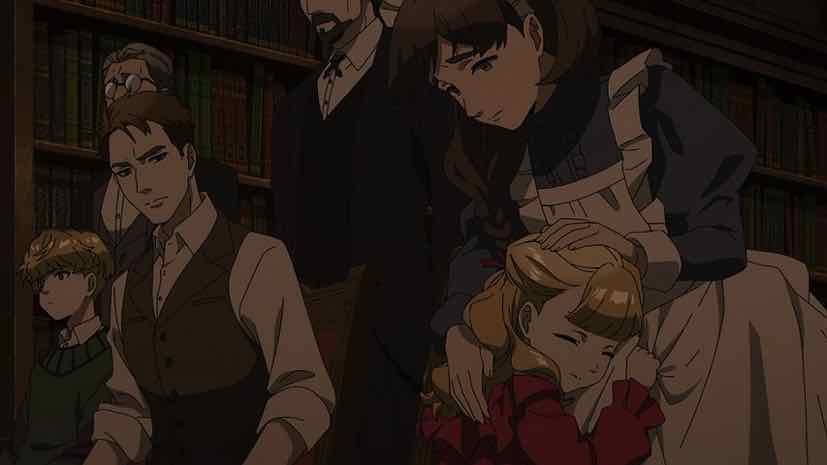 Now the story moves on with the pursuit of Moriarty – and with the mention of “Professor” I think we can pretty much assume that – who was at Godard’s mansion only three days earlier. Heck, we even get the phantom thief Arsène Lupin being name-dropped here. cementing the Holmes connection – though that has a fascinating story all its own. Lupin’s creator, Maurice Leblanc, wrote a Sherlock Holmes crossover story in 1906. Given that he never got Arthur Conan Doyle’s permission the latter was understandably upset – and Leblanc changed the characters’ names to “Herlock Sholmès” and “Wilson” (and wrote four more short stories with them). I’m fascinated to see where this goes next.
Now the story moves on with the pursuit of Moriarty – and with the mention of “Professor” I think we can pretty much assume that – who was at Godard’s mansion only three days earlier. Heck, we even get the phantom thief Arsène Lupin being name-dropped here. cementing the Holmes connection – though that has a fascinating story all its own. Lupin’s creator, Maurice Leblanc, wrote a Sherlock Holmes crossover story in 1906. Given that he never got Arthur Conan Doyle’s permission the latter was understandably upset – and Leblanc changed the characters’ names to “Herlock Sholmès” and “Wilson” (and wrote four more short stories with them). I’m fascinated to see where this goes next.


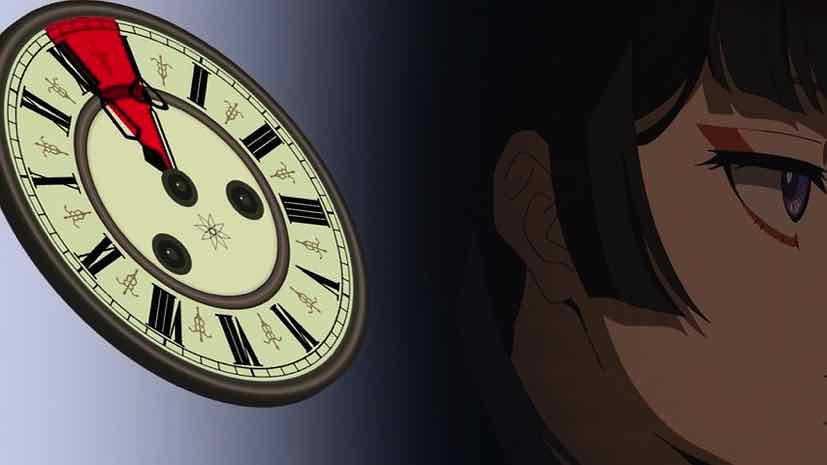
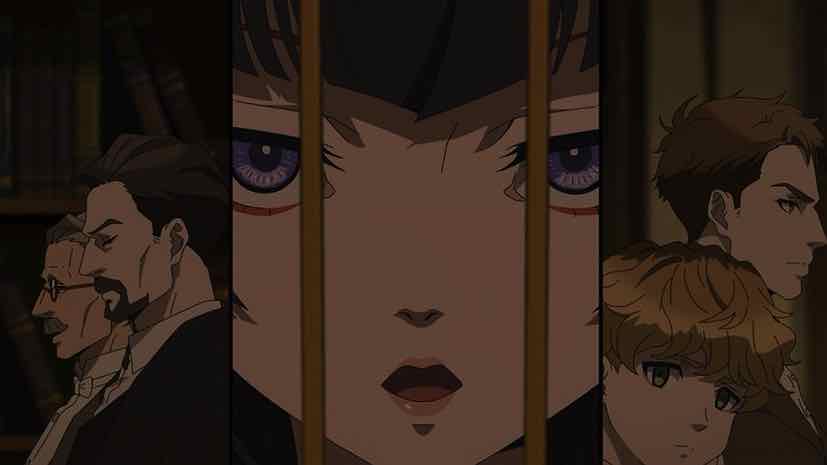
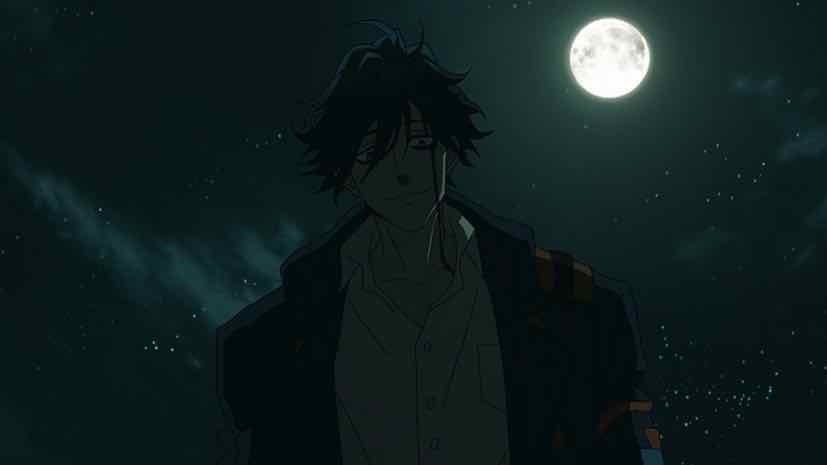
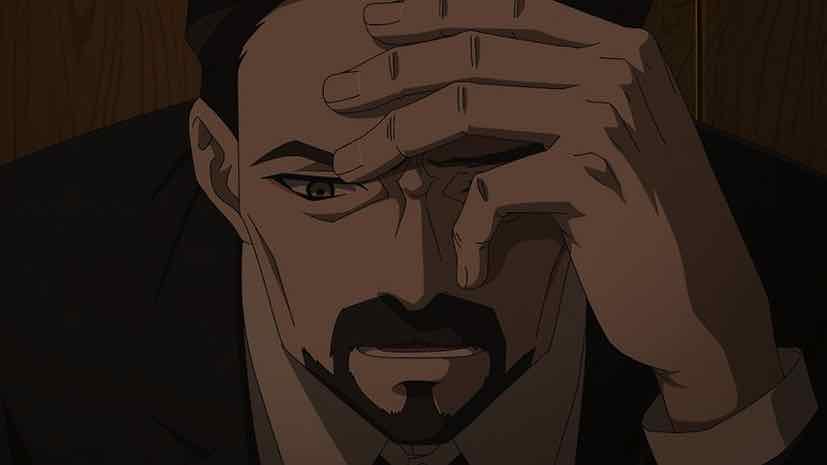



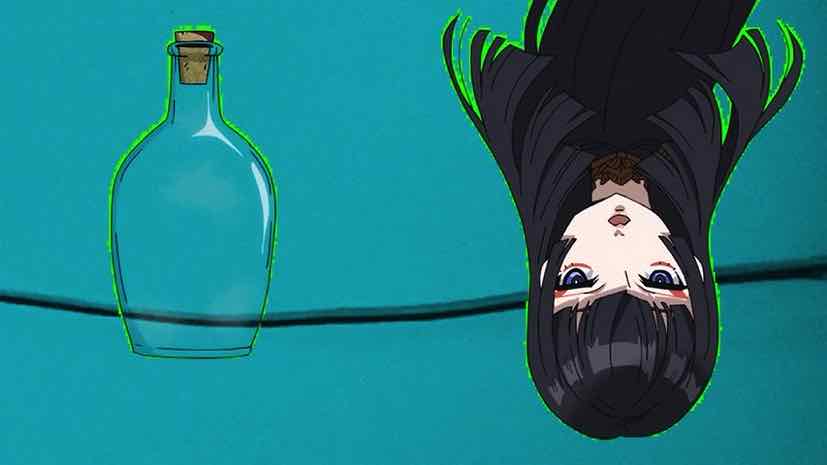
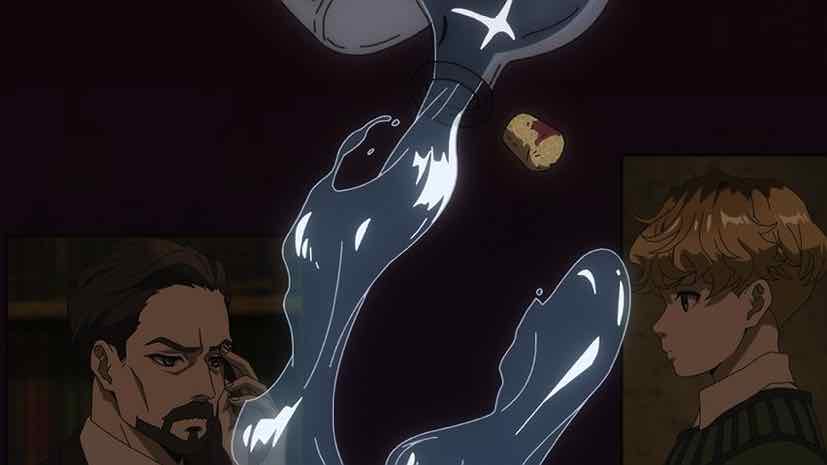




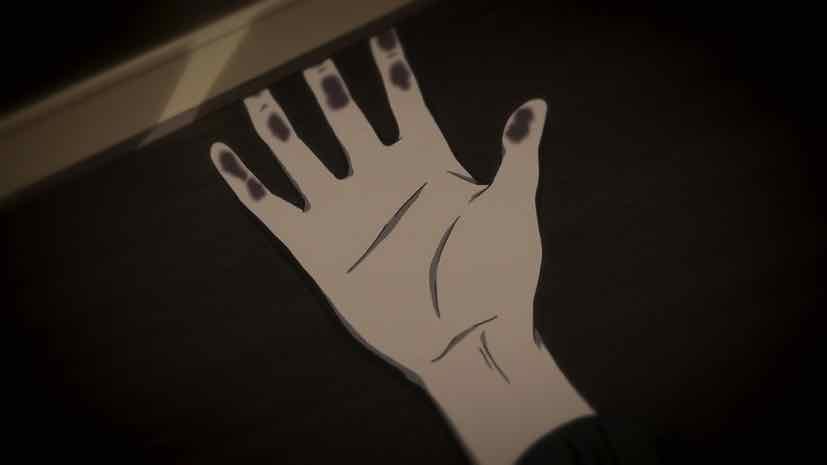

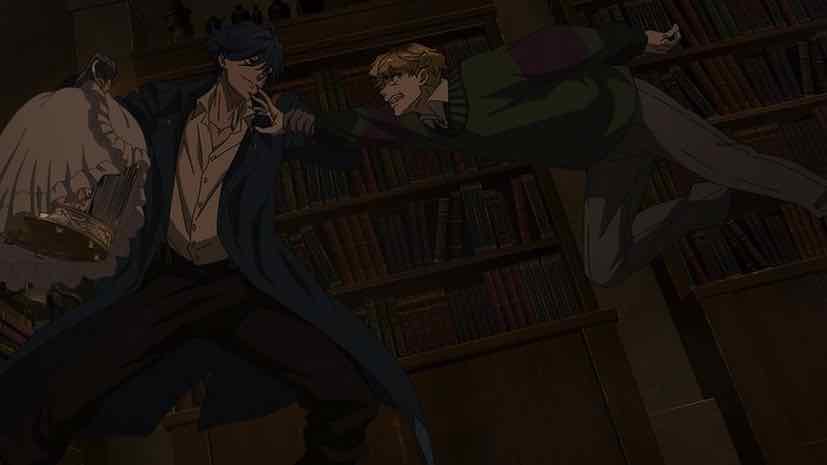
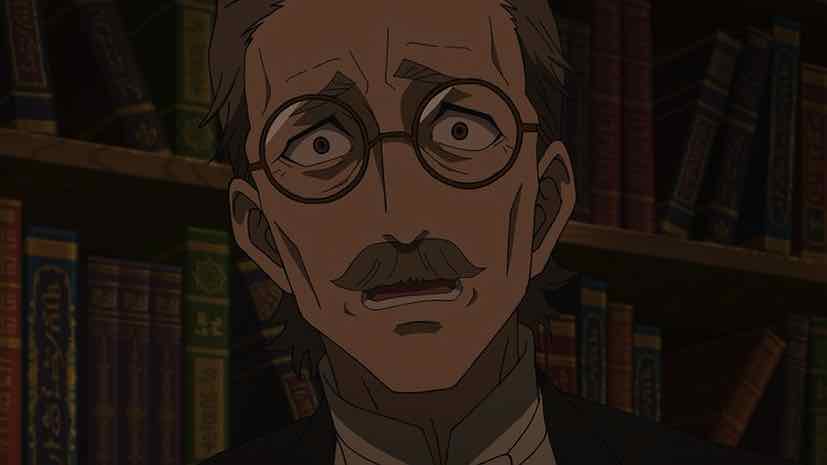

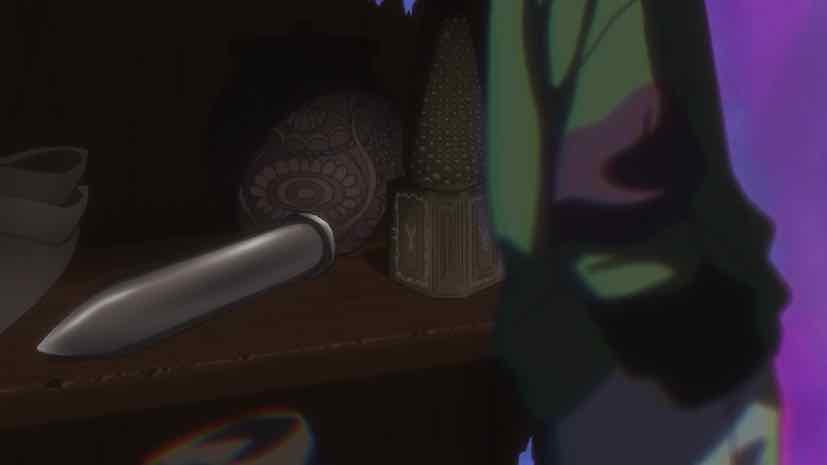
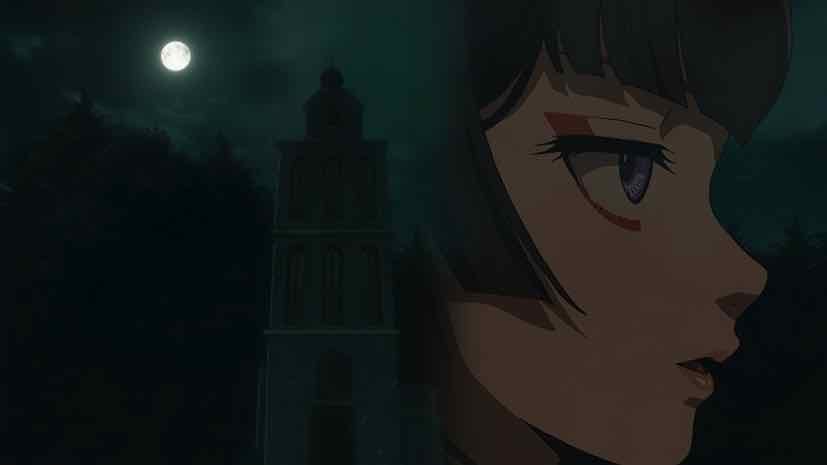


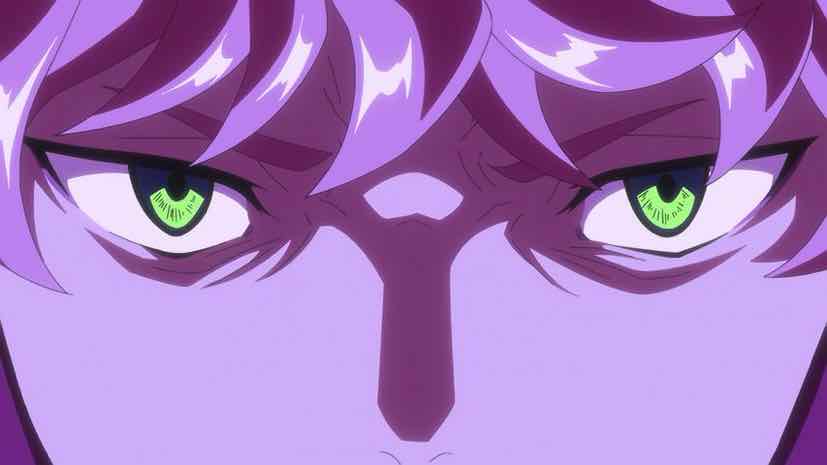
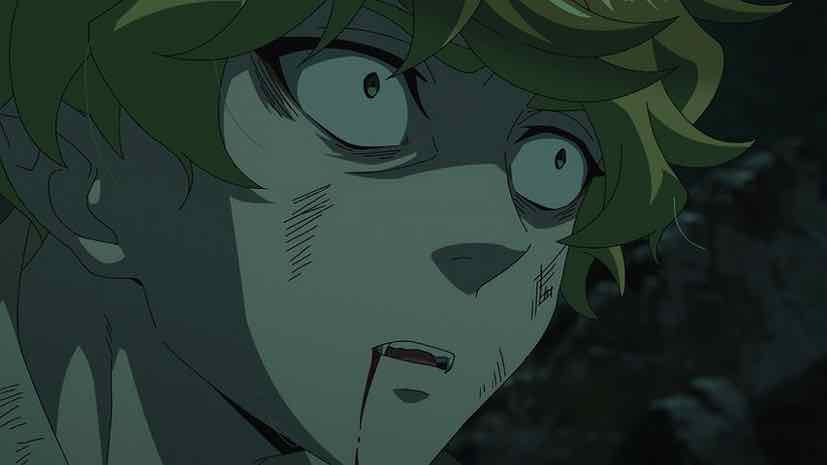
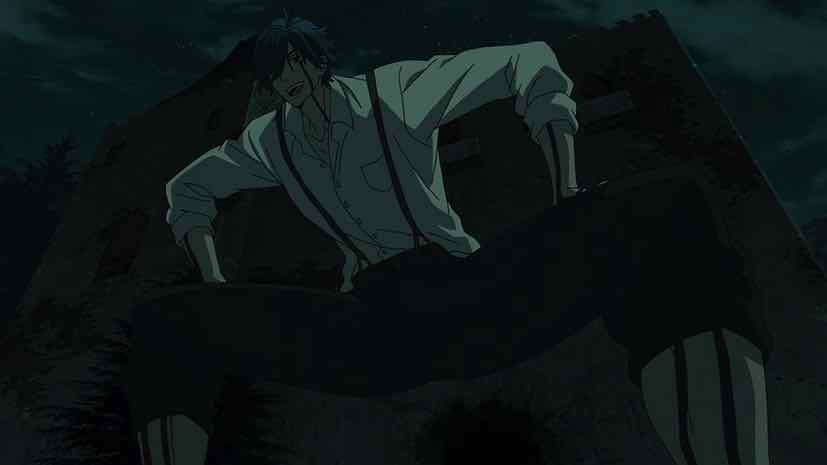

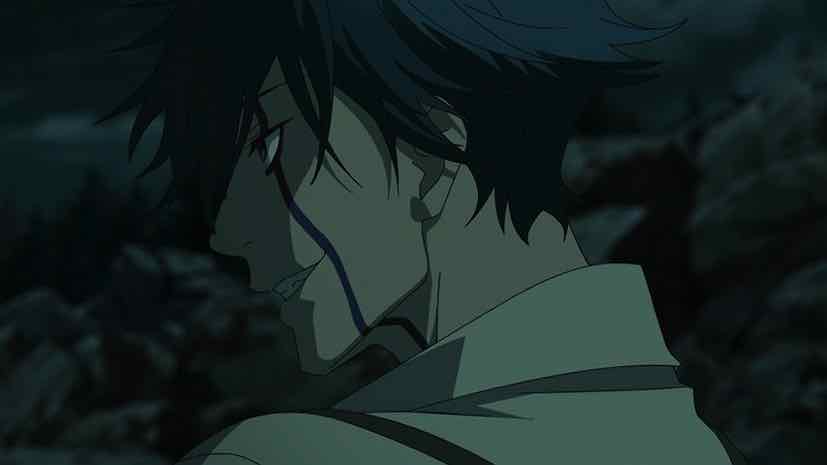


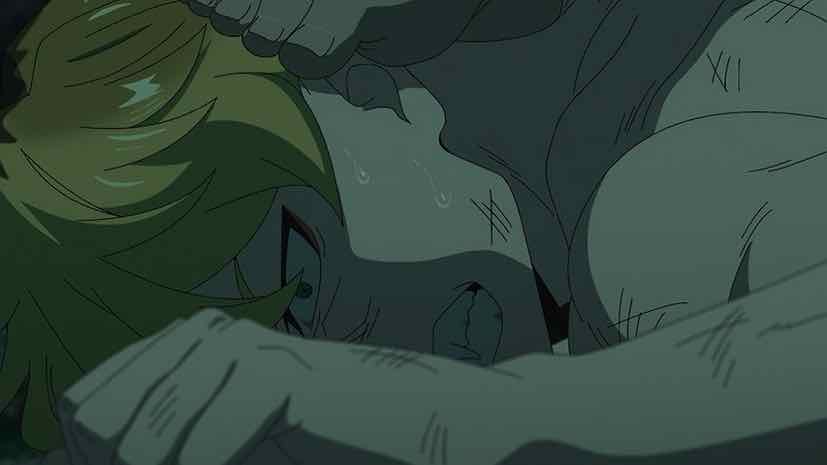


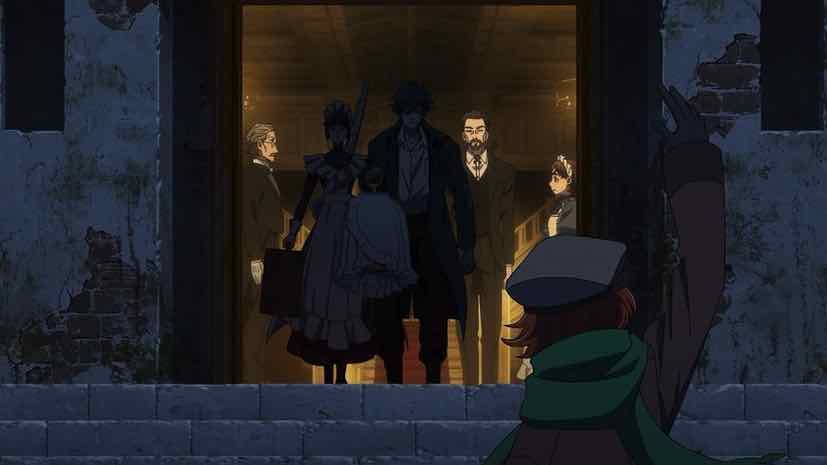

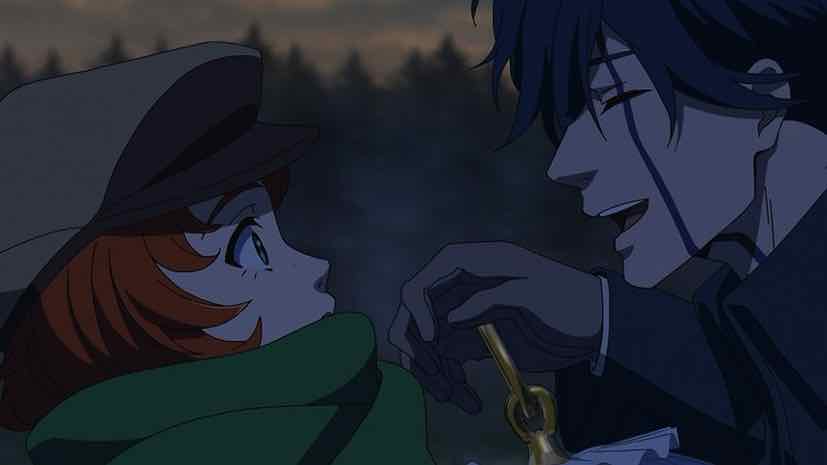


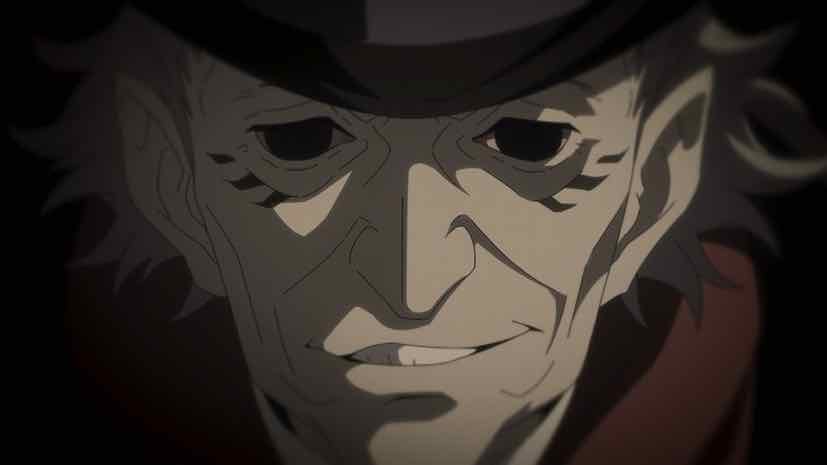
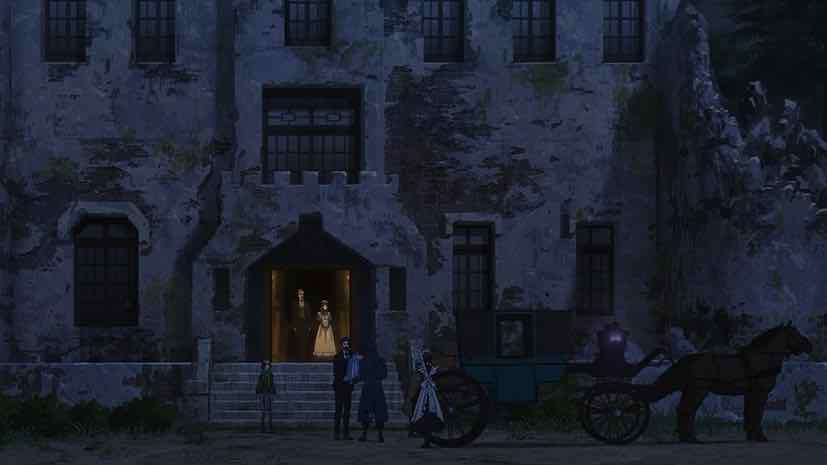


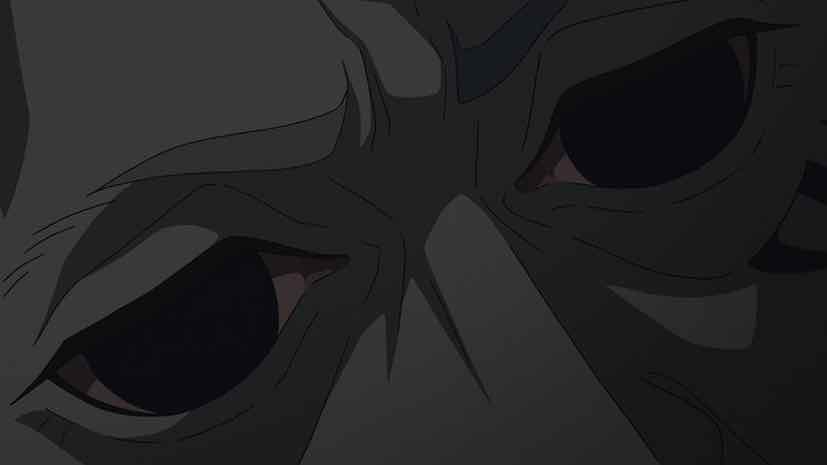


Nicc
July 28, 2023 at 8:05 amWhat a performance that was. I think we could establish with near certainty that it was an inside job and the murder was not done by an outsider. It turns out there was some indirect involvement from Hugo, but you’re right that the murderer was from somebody in the mansion. I don’t think that the brief visit from Professor “M” played a role here, but I wonder why he stopped by in the first place.
I was expecting a two-person job (One of the human helpers and a vampire), but it was a solo act after all. Even with modern murder investigations, time is always taken into account and establishing the correct timeline is crucial. Aya breaks it down until there’s only one possible suspect. Frozen holy water in the shape of a stake… I never thought of that one. Now, we know why Aya asked about the swords earlier on. Earlier on, we also saw Raoul hide his hand in his pocket. Raoul outs himself before Aya finishes explaining the case.
Unhappy with the peace between them and humans, Raoul kills his mother and now seems intent on killing everybody else. Unfortunately, his opponent is somebody who specializes on dealing with his kind. Indeed, Tsugaru plays the fool, but killing is what he does for a living. I agree that Tsugaru killed Raoul so that Lord Godard wouldn’t have to. Annie meets up with them as they are about to depart to get the scoop. It is the tragedy, indeed.
In the epilogue, you’re right there’s really little doubt at this point that this Professor “M” is Moriarty. Arsene Lupin is name-dropped along with the Phantom of the Opera. I wonder if that character that looks like Frankenstein’s Monster is really the one. It is out of the time period as it’s a character from the Regency Era rather than the Victorian Era. I wonder if Aya and company will be staying on the continent for a bit longer or if they’re on the way to England next. At least the ride across the Channel should be more smooth than the carriage.
animealex
July 28, 2023 at 2:38 pmThe only thing that didn’t satisfy me here is the motive for the murder. Matricide isn’t something I could even imagine, let alone for an abstract political motive. But perhaps Raoul was just a sociopath since birth, but I would still liked to have that explored more, because other factors which may have led to such an atrocious act (like abuse for example) aren’t even implied here. Or vampire psychology is fundamentally different from humans.
Oh well, my gut feeling was right, even though it seemed too obvious and everything needed to deduce the the crime was laid out before, with the possible exceptions of the freezing temperatures and the frequent church visits. (if it was mentioned before, somebody please correct me.)
Onward then! I hope to see more of this wild ride of a smart woman, her ruthless champion and their ice-cold maid.
Guardian Enzo
July 28, 2023 at 3:51 pmI think one consideration is that vampires – for all Godard’s diplomatic approach – are not human. They’re predators by nature. It may not be safe to assume that all vampire children love their parents.
Yann
August 30, 2023 at 2:28 pmI spent my childhood reading Conan Doyle and Maurice Leblanc… Always fun to see alternate takes on their characters!